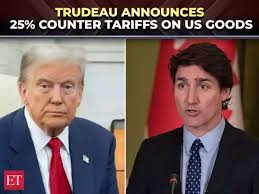
Introduction
Tariffs have emerged as a crucial topic in international trade discussions in recent years, significantly impacting economies around the world. A tariff is a tax imposed by a government on imported goods, intended to protect local industries and generate revenue. As global trade dynamics continue to shift, understanding tariffs becomes essential for businesses, policymakers, and consumers alike.
Current Events and Developments
As of late 2023, tariffs are at the forefront of economic policy discussions, particularly amid ongoing tensions in global trade. The United States, under the current administration, has maintained a series of tariffs on various imports, particularly from China. These tariffs were initially introduced during the trade war initiated in 2018, aimed at encouraging domestic production and reducing reliance on foreign goods. Analysts predict that these policies may continue into 2024 as the administration looks to bolster local manufacturing sectors.
In Canada, there has been a significant focus on the implication of tariffs within the context of USMCA (United States-Mexico-Canada Agreement). Although the agreement aims to eliminate numerous tariffs between the three nations, specific sectors, such as dairy and poultry, still face challenges related to tariffs imposed by the U.S. This has led to ongoing negotiations as Canadian farmers advocate for fair treatment in trade practices.
Global Perspectives on Tariffs
International reactions to tariffs have also been notable, as many countries seek to protect their own markets while competing in an increasingly globalized economy. The European Union, for instance, has expressed concerns about U.S. tariffs affecting automobile imports, leading to potential retaliatory measures. Countries like China have also implemented counter-tariffs on U.S. goods, creating a complex web of trade agreements that is affecting global supply chains.
Conclusion
As we look to the future, the role of tariffs in the global economy will likely become increasingly complex. Economists suggest that the current climate of uncertainty surrounding tariffs may impact everything from consumer prices to investment decisions. It remains essential for stakeholders to stay informed about tariff changes as they navigate the implications for trade, businesses, and the economy as a whole. In summary, tariffs will continue to shape the global trade landscape, and their significance cannot be understated.



